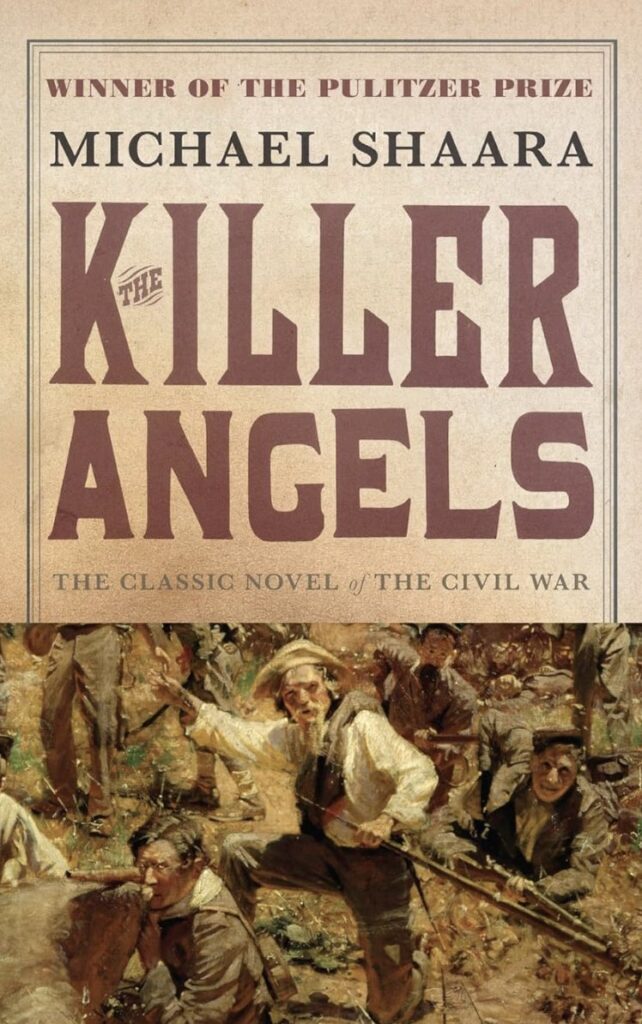
The Morality of War: Lessons from Michael Shaara's 'The Killer Angels'
By: The Good Newsroom
The ongoing war in Ukraine and military actions across the Middle East appear to have severe implications far beyond mere regional conflicts

Arguably, not since the end of World War II has sober concern about the possibility of a new global war been more serious than it is now. The ongoing war in Ukraine and military actions across the Middle East appear to have severe implications far beyond mere regional conflicts. The aggressors seem to have designs and goals with worldwide implications. Whether by expanding zones of aggression or compelling other nations to become more directly involved, these conflicts raise critical questions about expanded regional or even global conflict.
This global crisis forces us to consider questions about the morality of engaging in war. These questions include the criteria for the just cause for entering war, as well as the proper conduct once engaged.
From the standpoint of Catholic moral theology, considerations about engaging in war also must address the nature of the human person and the effects of war on the souls of individuals. Geopolitical considerations are, of course, important. But we must not neglect the deeper questions about the causes of conflicts and their implications for the human person.
These and other questions are carefully explored in Michael Shaara’s classic historical novel, “The Killer Angels,” published 50 years ago, in May 1974. Chronicling the Battle of Gettysburg from the American Civil War, the Pulitzer Prize-winning novel probes deeply into the thoughts of the major actors in this pivotal battle that — along with the contemporaneous fall of Vicksburg, Mississippi — turned the tide of the war. Hailed by some military historians as the greatest historical novel about the Civil War, “The Killer Angels” is as noteworthy for its account of the ruminations of the war’s officers as the respective battle strategies of the two sides.
Drawing upon memoirs, letters and other historical documents, the novel challenges the reader to think beyond the justice of the American Civil War. It raises broad and perennial questions about the moral, psychological and religious implications of war. For my limited purpose in this column, Shaara’s account of Union colonel Joshua Chamberlain is the most compelling.
At the outset of the war, Chamberlain was a professor of rhetoric at Bowdoin College in his native Maine. Before he volunteered for the 20th Maine Regiment, he had no military training or experience and was unsure of his motivation for enlisting. But Chamberlain had at least a vague sense of the moral justice of the Union side, and he was determined that he could not enjoy the blessings of the Union without contributing to its protection.
Chamberlain was the hero of Gettysburg, leading his men in a textbook battle maneuver that may have been the most important event in the three-day battle. But along the way, he was forced to confront the tragedy of death and destruction on both sides of the conflict. Before they were soldiers for a cause (or several causes), they were human beings.
He developed both close relationships with the men who served under him and empathy for those he was commissioned to defend against. Most importantly, through Chamberlain’s thoughts and words, Shaara confronts us, his readers, with the fierce implications of people causing the deaths of other people, even for a just cause.
At one point in the battle, Joshua Chamberlain remembers an interaction he had with his father when Chamberlain was a student. Joshua had recited a line from “Hamlet”: “What a piece of work is man… in action how like an angel!” Hearing this, his father “scratched his head and then said stiffly, ‘Well, boy, if he’s an angel, he’s sure a murderin’ angel.'”
This vignette is reprised in a conversation that Chamberlain has with his brother, Lieutenant Thomas Chamberlain after the smoke had cleared from the battle, revealing the tens of thousands of dead men in the field. After noting that their Confederate prisoners neither owned slaves nor justified the war in terms of slavery, Thomas exclaimed, “[T]hat’s what those fellers died for, and I tell you … I don’t understand it at all.” Colonel Chamberlain replied, “No,” and his mind wandered back to “Hamlet”: “‘Animal meat,’ he thought: ‘Killer Angels.'”
And as they gaze over the acres of dead men from both sides, the brothers conclude their conversation: “Well, they’re all equal now,” says Joshua. “In the sight of God, anyways,” notes Thomas. “Yes,” Joshua said. “In the sight of God.”
This 50th anniversary of “The Killer Angels,” amid wars and rumors of wars, is an opportune time to take up this unfortunately timely novel.
– – –
Kenneth Craycraft is an associate professor of moral theology at Mount St. Mary’s Seminary and School of Theology in Cincinnati and author of “Citizens Yet Strangers: Living Authentically Catholic in a Divided America” (Our Sunday Visitor, 2024).
By:
Armando Machado
By:
Armando Machado
By:
Steven Schwankert



